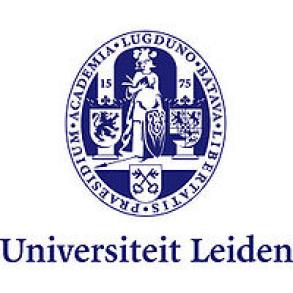To all students who wish to read Law in another country via the wonderful opportunity the LL.M degrees offer, here is some advice for you.
My name is Marina and I have studied European Law at Leiden University in The Netherlands through its ‘European Law’ LL.M programme.
I wish to share my experience in order to make yours as easy as it can be. After all, in a dream world, the worries of a student should mainly concern the content of his/her studies and how he/she is going to retain all of the course’s contents rather than having worries linked to the studies’ funding or on the way the programme is organised.
If you agree with this, today is your lucky day! Here is some useful information for you.
From my personal experience, it is not easy to get information on how to fund a year abroad. Therefore, I would like to provide you with the wonderful discovery I made while I was looking for ways to fund my year abroad.
This seems to be unknown but you can get a bursary from the French State. This applies to people who receive a bursary for their degree in France on basis of social criteria (via the CROUS). If this is your case, it is ‘easy’. You can apply for a bursary as you would do if you were studying in France. I am cautious about the word easy as there are some conditions to benefit from this bursary. The university you will be studying at has to be on the CROUS list of European universities for which it allows you to receive the French bursary. Basically, it has to be a ‘well-known’ university in order to be on the list.
Be careful as well regarding the start of your LL.M degree. Indeed, in France most of the programmes start in September. Abroad, it can happen that you can choose your year to start in February (cf. next section on organising your LL.M). If this is the case, you have to take extra care, as the CROUS (at least the one that dealt with my file, and I suspect it to be the same elsewhere) will not agree to transfer the money if you do not follow a ‘normal’ academic year namely September to June.
If you are not eligible to receive a bursary from the CROUS, you could try to get some information on the university’s website. Some universities allocate some bursaries to foreign students. Nonetheless, note that this is usually more often for students outside Europe. I would still recommend you go and have a look on their website… you never know you might be one of the lucky few.
Checking what your region has put in place in that field can also be wise. Indeed, in Brittany for example the ‘Horizons’ programme allows you to get grants without interest from specific banks with which the region has a partnership. Then again, be prepared that the bank or the person you will speak to at the bank might not be aware of it. Please, if you are sure you can benefit from it, let the bank know of the programme.
To cut a long story short, do not give up! There are some possibilities out there to get your studies funded!
Studying abroad can be a bit of a struggle if a student has not been given information about the schedule of the programme or how the course is organised.
Starting with the beginning, the language. Studying in English is fun especially if it is all you have been dreaming about for years! Nonetheless, you should be aware that knowing how to speak English and studying Law in English is not the same. You just have to be aware that you might struggle at the beginning if you have never been taught the English law vocabulary. Nonetheless, you should not worry about this too much, as I said you just have to be aware of it so as to not be surprised. After going through pages and pages of readings given by your professor, you should become familiar with the vocabulary and it will soon be part of the vocabulary you will use while speaking or writing your essays.
The culture of the country where you will study is also going to play a role in the way you feel during your LL.M. Usually, some introductory ‘lessons’ are given when you arrive at your new university if you are a foreign student. When I went to study as an Erasmus student in the UK, I was offered a 2-hour lecture on British culture: learning that queuing is crucial etc. In the Netherlands, people might tend to be more straightforward, nothing bad here. Just be prepared so you do not misinterpret what people are trying to say.
Finally, I want to make a point on the possibility to start your LL.M in February. In some universities this is possible. There is something to know though, I do not know if this is the case for all universities, but in Leiden I was surprised to start directly with the second semester. A lot of my fellow colleagues who started in February were surprised as well. Indeed, we expected to start freshly in February and instead we joined the people who started in September and caught up with them by studying second semester modules.
There is nothing wrong with that. It is just harder to start working at the end of the programme. If starting in February is something you would consider, just make sure you check with your university which modules you will be starting with.
One’s always hope his/her advice will not fall on deaf ears. So get as much advice as you can and your year will be a fantastic, rewarding and fulfilling one.
Marina Pinault
You could find more information about the LL.M. in European Law at Leiden University here.



